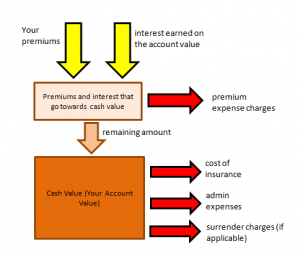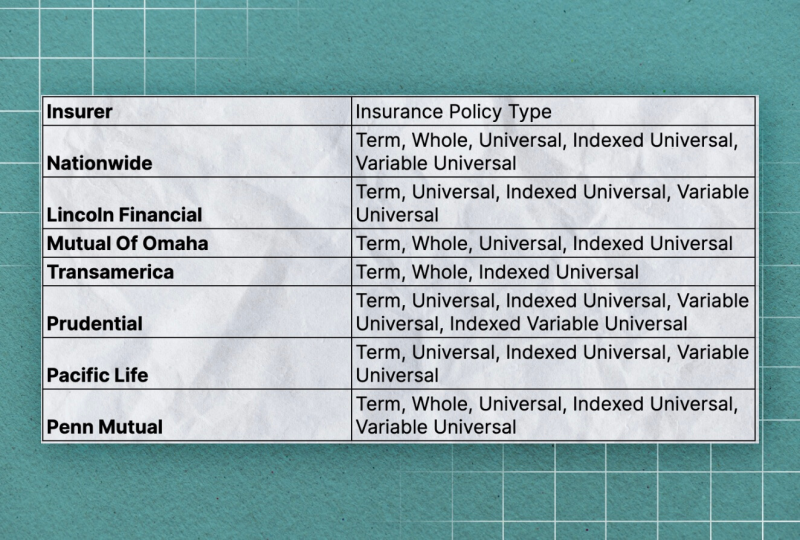All Categories
Featured
Table of Contents
1), frequently in an effort to beat their category standards. This is a straw man debate, and one IUL folks enjoy to make. Do they contrast the IUL to something like the Lead Total Stock Exchange Fund Admiral Shares with no tons, an expenditure proportion (ER) of 5 basis factors, a turnover ratio of 4.3%, and an outstanding tax-efficient record of circulations? No, they compare it to some awful actively taken care of fund with an 8% lots, a 2% ER, an 80% turnover ratio, and a dreadful record of temporary resources gain distributions.
Common funds commonly make yearly taxable distributions to fund owners, even when the worth of their fund has actually dropped in worth. Shared funds not just call for earnings coverage (and the resulting yearly tax) when the mutual fund is rising in value, yet can likewise impose income tax obligations in a year when the fund has gone down in value.
That's not how common funds work. You can tax-manage the fund, gathering losses and gains in order to lessen taxable distributions to the financiers, but that isn't in some way going to alter the reported return of the fund. Just Bernie Madoff kinds can do that. IULs avoid myriad tax obligation traps. The possession of common funds may require the common fund proprietor to pay estimated tax obligations.

IULs are easy to place so that, at the proprietor's death, the recipient is not subject to either earnings or estate taxes. The exact same tax obligation decrease strategies do not work virtually too with mutual funds. There are countless, typically pricey, tax catches connected with the moment trading of common fund shares, traps that do not use to indexed life Insurance.
Opportunities aren't really high that you're going to undergo the AMT due to your mutual fund distributions if you aren't without them. The rest of this one is half-truths at ideal. While it is true that there is no income tax due to your successors when they inherit the earnings of your IUL policy, it is also real that there is no income tax due to your beneficiaries when they inherit a shared fund in a taxed account from you.
Iul Medical Abbreviation
There are far better means to avoid estate tax obligation concerns than purchasing investments with reduced returns. Mutual funds may create revenue tax of Social Protection advantages.

The development within the IUL is tax-deferred and might be taken as tax complimentary revenue using car loans. The policy proprietor (vs. the common fund supervisor) is in control of his or her reportable earnings, hence enabling them to lower or even eliminate the taxation of their Social Safety benefits. This is excellent.
Below's an additional minimal issue. It's real if you buy a shared fund for state $10 per share simply prior to the circulation date, and it distributes a $0.50 distribution, you are then mosting likely to owe tax obligations (most likely 7-10 cents per share) in spite of the reality that you have not yet had any type of gains.
In the end, it's truly regarding the after-tax return, not just how much you pay in tax obligations. You're also most likely going to have even more money after paying those taxes. The record-keeping needs for having common funds are dramatically much more complicated.
With an IUL, one's documents are maintained by the insurer, duplicates of yearly statements are sent by mail to the owner, and circulations (if any kind of) are completed and reported at year end. This one is additionally sort of silly. Obviously you ought to maintain your tax obligation records in situation of an audit.
What's The Difference Between Whole Life And Universal Life Insurance
All you have to do is shove the paper into your tax folder when it appears in the mail. Hardly a factor to buy life insurance coverage. It's like this individual has never purchased a taxable account or something. Shared funds are generally component of a decedent's probated estate.
In addition, they go through the hold-ups and expenditures of probate. The earnings of the IUL policy, on the various other hand, is constantly a non-probate circulation that passes beyond probate straight to one's named beneficiaries, and is for that reason exempt to one's posthumous financial institutions, undesirable public disclosure, or similar delays and prices.
We covered this under # 7, however simply to summarize, if you have a taxed mutual fund account, you must place it in a revocable trust fund (or even much easier, utilize the Transfer on Death designation) to avoid probate. Medicaid disqualification and life time revenue. An IUL can provide their proprietors with a stream of revenue for their entire life time, despite for how long they live.

This is valuable when arranging one's affairs, and converting assets to revenue before a nursing home arrest. Shared funds can not be transformed in a similar manner, and are generally thought about countable Medicaid assets. This is an additional stupid one advocating that poor people (you understand, the ones that need Medicaid, a federal government program for the bad, to spend for their assisted living home) should use IUL as opposed to shared funds.
Universal Life Option 1
And life insurance policy looks dreadful when compared fairly versus a retired life account. Second, people who have cash to purchase IUL above and beyond their pension are going to have to be dreadful at handling money in order to ever get approved for Medicaid to pay for their assisted living facility costs.
Persistent and terminal illness motorcyclist. All policies will allow a proprietor's easy access to money from their plan, usually waiving any type of surrender charges when such people experience a severe ailment, require at-home treatment, or become restricted to a retirement home. Shared funds do not offer a similar waiver when contingent deferred sales costs still apply to a shared fund account whose proprietor requires to offer some shares to fund the expenses of such a stay.
Index Universal Life Insurance Companies
You obtain to pay more for that benefit (motorcyclist) with an insurance plan. Indexed global life insurance offers fatality benefits to the beneficiaries of the IUL proprietors, and neither the owner nor the beneficiary can ever before shed cash due to a down market.
Now, ask on your own, do you in fact need or desire a survivor benefit? I certainly don't need one after I get to monetary freedom. Do I desire one? I mean if it were economical sufficient. Naturally, it isn't low-cost. Typically, a purchaser of life insurance policy pays for truth price of the life insurance policy advantage, plus the expenses of the policy, plus the earnings of the insurer.
Insurance Indexation
I'm not completely certain why Mr. Morais threw in the entire "you can't lose cash" again right here as it was covered fairly well in # 1. He simply wished to duplicate the very best marketing factor for these things I expect. Again, you don't lose small dollars, yet you can shed actual dollars, as well as face significant chance cost because of reduced returns.

An indexed global life insurance policy policy proprietor may exchange their policy for a totally various plan without setting off income tax obligations. A common fund owner can not move funds from one shared fund firm to one more without selling his shares at the former (therefore triggering a taxed occasion), and buying brand-new shares at the last, typically subject to sales fees at both.
While it is real that you can exchange one insurance plan for one more, the factor that individuals do this is that the initial one is such a terrible policy that also after getting a brand-new one and going through the early, unfavorable return years, you'll still appear ahead. If they were marketed the ideal policy the very first time, they shouldn't have any kind of wish to ever exchange it and undergo the very early, negative return years once more.
Table of Contents
Latest Posts
Index Linked Term Insurance
Fixed Universal Life
Max Funded Life Insurance
More
Latest Posts
Index Linked Term Insurance
Fixed Universal Life
Max Funded Life Insurance